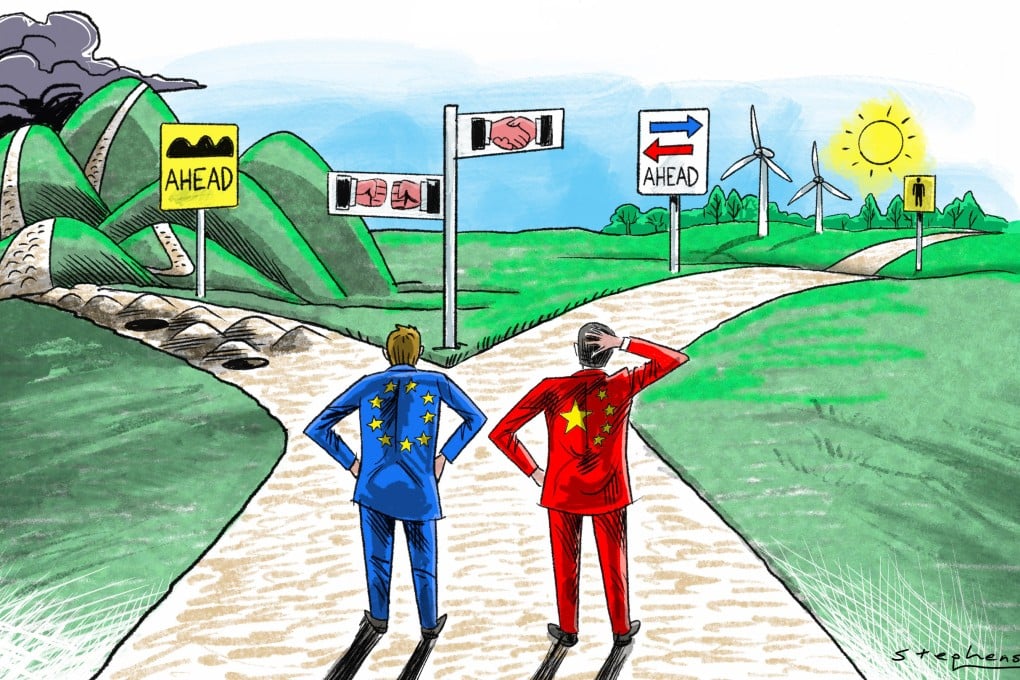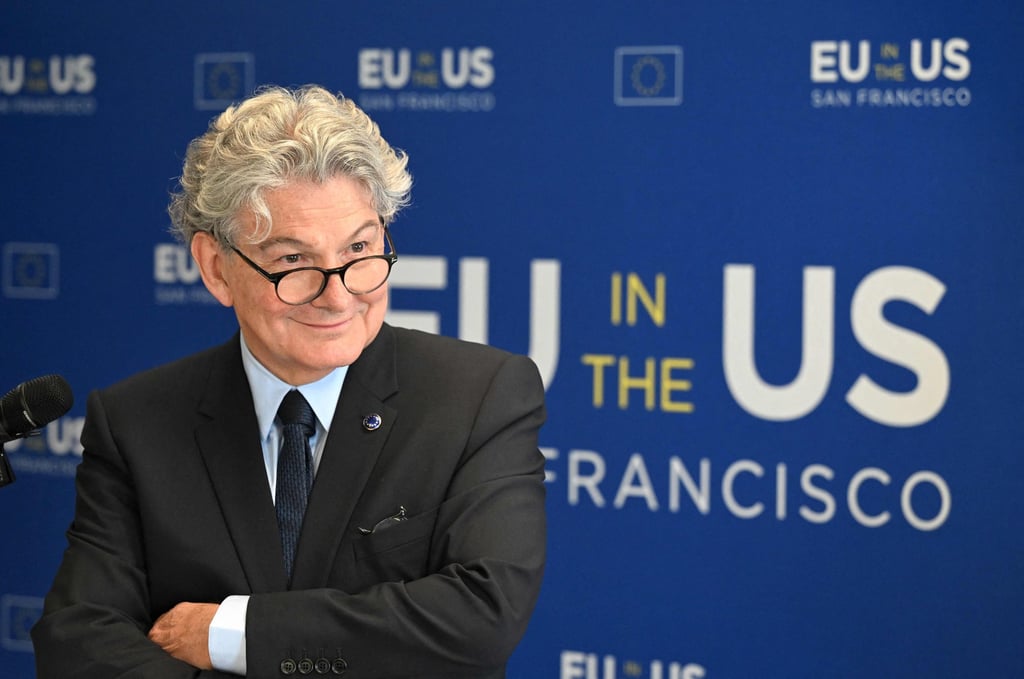Advertisement
Opinion | Which way will China-EU relations go: more cooperation or increased confrontation?
- This year has brought a revival of bilateral engagement, but the potential for conflict arising from divergent security perspectives is likely to endure
- China-EU ties stand at a crossroads – the first path envisions a momentous improvement, the second, a deterioration in the relationship
Reading Time:4 minutes
Why you can trust SCMP
6

European Union leaders’ recent statements encapsulate Europe’s dual stance on relations with China, encompassing cooperation and competition.
Advertisement
Sino-European ties in 2024 will be characterised by a blend of collaboration on global challenges, economic interdependence and conflicts as a result of divergent security strategies, according to Jorge Toledo, the EU’s ambassador to China. This is in keeping with the union’s vision of China as a partner, competitor and systemic rival, echoing EU High Representative Josep Borrell’s speech at Peking University on October 13, when he called it “conflictual interdependence”.
Analysing the events of 2023 is crucial to forecasting 2024. This year has brought a revival of bilateral engagement, as seen in increased interactions, agreements and reciprocal leadership visits. Premier Li Qiang’s trips to Germany and France highlighted Beijing’s European priorities. Chinese foreign ministers have made visits to Europe, while China’s EU ambassador Fu Cong has advocated for enhanced ties.
In addition, key European leaders – including French President Emmanuel Macron, German Chancellor Olaf Scholz, European Commission President Ursula von der Leyen and European Council President Charles Michel – have visited Beijing. Thierry Breton, the EU chief for the internal market, is visiting China this week, becoming the latest commissioner to do so in recent months.
While these leaders have underscored strengthening economic bonds, Europe is dealing with lingering apprehensions over Chinese dominance of vital resources, market access barriers and trade imbalances. The EU has a trade deficit of nearly €400 billion (US$430 billion), an imbalance Toledo called the highest in “the history of mankind”. However, a mechanism that could address these issues – the EU-China Comprehensive Agreement on Investment – has been stuck, pending ratification, for several years.

They have endeavoured to clarify the “de-risking” strategy aimed at hazard mitigation, partnership diversification, trade interaction reconfiguration and relocating operations to tackle dependencies in critical sectors. Beijing, which employs its own risk -mitigation methods, has nonetheless denounced this approach.

Advertisement
